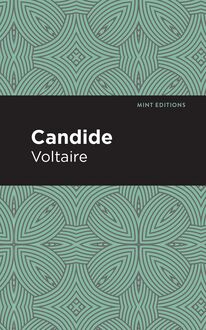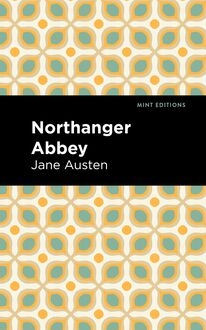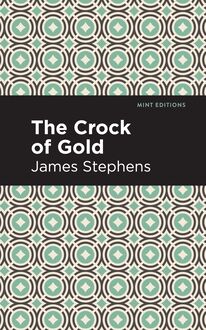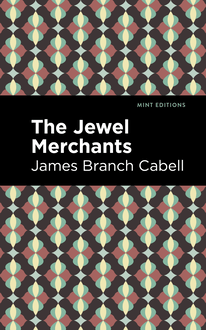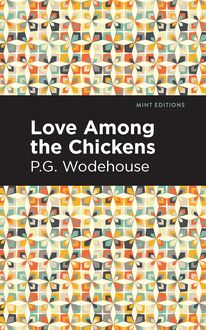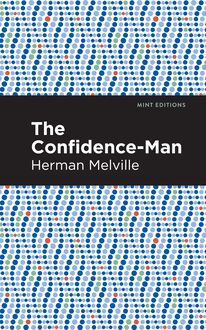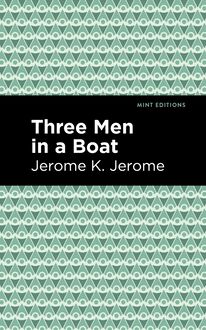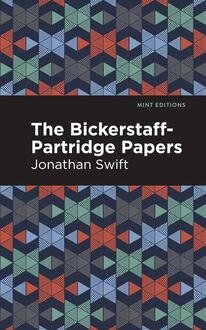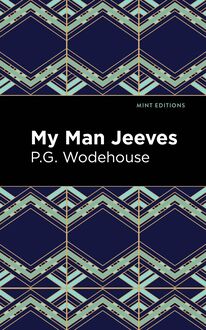-
 Univers
Univers
-
 Ebooks
Ebooks
-
 Livres audio
Livres audio
-
 Presse
Presse
-
 Podcasts
Podcasts
-
 BD
BD
-
 Documents
Documents
-
- Cours
- Révisions
- Ressources pédagogiques
- Sciences de l’éducation
- Manuels scolaires
- Langues
- Travaux de classe
- Annales de BEP
- Etudes supérieures
- Maternelle et primaire
- Fiches de lecture
- Orientation scolaire
- Méthodologie
- Corrigés de devoir
- Annales d’examens et concours
- Annales du bac
- Annales du brevet
- Rapports de stage
La lecture à portée de main
Vous pourrez modifier la taille du texte de cet ouvrage
Découvre YouScribe en t'inscrivant gratuitement
Je m'inscrisDécouvre YouScribe en t'inscrivant gratuitement
Je m'inscrisEn savoir plus
Vous pourrez modifier la taille du texte de cet ouvrage
En savoir plus

Description
Vice Versa (1882) is a comic novel by Thomas Anstey Guthrie. Guthrie’s debut novel was a popular success, earning him a reputation as a leading humorist of his time. Adapted several times for film, theater, and radio, the novel inspired Mary Rodgers’ beloved Freaky Friday (1972) and is referenced in such wide-ranging works as C. S. Lewis’ That Hideous Strength, James Joyce’s Ulysses, and Malcolm Lowry’s Under the Volcano.As holidays draw to a close, Dick prepares to return to boarding school. Dreading the inevitable encounter with harsh headmaster Dr. Grimstone, he shows obvious signs of trepidation as he packs his luggage to leave. Watching from the doorway, his father, businessman Paul Bultitude, attempts to console his son. He encourages him to enjoy his time at school, warning that life gets much more tiresome as one ages. Nevertheless, Dick remains morose throughout the day. At the last minute, the boy asks if he can take with him the stone brought back by his uncle from India. Hesitant at first, Mr. Bultitude goes to fetch it, failing to realize its potent magical properties. Struggling to convince Dick to leave, he admits that his only wish in life would be to live as a boy once more. Just then, the magic of the stone takes hold, transforming Mr. Bultitude into a child the same age as his son. Terrified, he begs Dick—now doubled over with laughter—to change him back. But the boy senses a once in a lifetime opportunity and wishes on the stone to become a middle-aged man. As they navigate one another’s daily lives, father and son gain a deeper understanding of one another’s fears, dreams, and desires, all while desperately attempting to keep their transformations secret. With a beautifully designed cover and professionally typeset manuscript, this edition of Thomas Anstey Guthrie Vice Versa is a classic of British literature reimagined for modern readers.
Sujets
Informations
| Publié par | Mint Editions |
| Date de parution | 28 mai 2021 |
| Nombre de lectures | 1 |
| EAN13 | 9781513287973 |
| Langue | English |
| Poids de l'ouvrage | 1 Mo |
Informations légales : prix de location à la page 0,0500€. Cette information est donnée uniquement à titre indicatif conformément à la législation en vigueur.
Extrait
Vice Versa
Thomas Anstey Guthrie
Vice Versa was first published in 1882.
This edition published by Mint Editions 2021.
ISBN 9781513282954 | E-ISBN 9781513287973
Published by Mint Editions ®
minteditionbooks.com
Publishing Director: Jennifer Newens
Design & Production: Rachel Lopez Metzger
Project Manager: Micaela Clark
Typesetting: Westchester Publishing Services
C ONTENTS P REFACE 1. B LACK M ONDAY 2. A G RAND T RANSFORMATION S CENE 3. I N THE T OILS 4. A M INNOW AMONGST T RITONS 5. D ISGRACE 6. L EARNING AND A CCOMPLISHMENTS 7. C UTTING THE K NOT 8. U NBENDING THE B OW 9. A L ETTER FROM H OME 10. T HE C OMPLETE L ETTER- W RITER 11. A D AY OF R EST 12. A GAINST T IME 13. A R ESPITE 14. A N E RROR OF J UDGMENT 15. T HE R UBICON 16. H ARD P RESSED 17. A P ERFIDIOUS A LLY 18. R UN TO E ARTH 19. T HE R ECKONING
P REFACE
T here is an old story of a punctiliously polite Greek, who, while performing the funeral of an infant daughter, felt bound to make his excuses to the spectators for “bringing out such a ridiculously small corpse to so large a crowd.”
The Author, although he trusts that the present production has more vitality than the Greek gentleman’s child, still feels that in these days of philosophical fiction, metaphysical romance, and novels with a purpose, some apology may perhaps be needed for a tale which has the unambitious and frivolous aim of mere amusement.
However, he ventures to leave the tale to be its own apology, merely contenting himself with the entreaty that his little fish may be spared the rebuke that it is not a whale.
In submitting it with all possible respect to the Public, he conceives that no form of words he could devise would appeal so simply and powerfully to their feelings as that which he has ventured to adopt from a certain Anglo-Portuguese Phrase-Book of deserved popularity.
Like the compilers of that work, he—“expects then who the little book, for the care what he wrote him and her typographical corrections, will commend itself to the— British Paterfamilias —at which he dedicates him particularly.”
1
B LACK M ONDAY
“In England, where boys go to boarding schools, if the holidays were not long there would be no opportunity for cultivating the domestic affections.”
— Letter of Lord Campbell’s, 1835
O n a certain Monday evening late in January, 1881, Paul Bultitude, Esq. (of Mincing Lane, Colonial Produce Merchant), was sitting alone in his dining-room at Westbourne Terrace after dinner.
The room was a long and lofty one, furnished in the stern uncompromising style of the Mahogany Age, now supplanted by the later fashions of decoration which, in their outset original and artistic, seem fairly on the way to become as meaningless and conventional.
Here were no skilfully contrasted shades of grey or green, no dado, no distemper on the walls; the woodwork was grained and varnished after the manner of the Philistines, the walls papered in dark crimson, with heavy curtains of the same colour, and the sideboard, dinner-waggon, and row of stiff chairs were all carved in the same massive and expensive style of ugliness. The pictures were those familiar presentments of dirty rabbits, fat white horses, bloated goddesses, and misshapen boors, by masters who, if younger than they assume to be, must have been quite old enough to know better.
Mr. Bultitude was a tall and portly person, of a somewhat pompous and overbearing demeanour; not much over fifty, but looking considerably older. He had a high shining head, from which the hair had mostly departed, what little still remained being of a grizzled auburn, prominent pale blue eyes with heavy eyelids and fierce, bushy whitey-brown eyebrows. His general expression suggested a conviction of his own extreme importance, but, in spite of this, his big underlip drooped rather weakly and his double chin slightly receded, giving a judge of character reason for suspecting that a certain obstinate positiveness observable in Mr. Bultitude’s manner might possibly be due less to the possession of an unusually strong will than to the circumstance that, by some fortunate chance, that will had hitherto never met with serious opposition.
The room, with all its æ sthetic shortcomings, was comfortable enough, and Mr. Bultitude’s attitude—he was lying back in a well-wadded leather arm-chair, with a glass of claret at his elbow and his feet stretched out towards the ruddy blaze of the fire—seemed at first sight to imply that happy after-dinner condition of perfect satisfaction with oneself and things in general, which is the natural outcome of a good cook, a good conscience, and a good digestion.
At first sight; because his face did not confirm the impression—there was a latent uneasiness in it, an air of suppressed irritation, as if he expected and even dreaded to be disturbed at any moment, and yet was powerless to resent the intrusion as he would like to do.
At the slightest sound in the hall outside he would half rise in his chair and glance at the door with a mixture of alarm and resignation, and as often as the steps died away and the door remained closed, he would sink back and resettle himself with a shrug of evident relief.
Habitual novel readers on reading thus far will, I am afraid, prepare themselves for the arrival of a faithful cashier with news of irretrievable ruin, or a mysterious and cynical stranger threatening disclosures of a disgraceful nature.
But all such anticipations must at once be ruthlessly dispelled. Mr. Bultitude, although he was certainly a merchant, was a fairly successful one—in direct defiance of the laws of fiction, where any connection with commerce seems to lead naturally to failure in one of the three volumes.
He was an elderly gentleman, too, of irreproachable character and antecedents; no Damocles’ sword of exposure was swinging over his bald but blameless head; he had no disasters to fear and no indiscretions to conceal. He had not been intended for melodrama, with which, indeed, he would not have considered it a respectable thing to be connected.
In fact, the secret of his uneasiness was so absurdly simple and commonplace that I am rather ashamed to have made even a temporary mystery of it.
His son Dick was about to return to school that evening, and Mr. Bultitude was expecting every moment to be called upon to go through a parting scene with him; that was really all that was troubling him.
This sounds very creditable to the tenderness of his feelings as a father—for there are some parents who bear such a bereavement at the close of the holidays with extraordinary fortitude, if they do not actually betray an unnatural satisfaction at the event.
But it was not exactly from softness of heart that he was restless and impatient, nor did he dread any severe strain upon his emotions. He was not much given to sentiment, and was the author of more than one of those pathetically indignant letters to the papers, in which the British parent denounces the expenses of education and the unconscionable length and frequency of vacations.
He was one of those nervous and fidgety persons who cannot understand their own children, looking on them as objectionable monsters whose next movements are uncertain—much as Frankenstein must have felt towards his monster.
He hated to have a boy about the house, and positively writhed under the irrelevant and irrepressible questions, the unnecessary noises and boisterous high spirits which nothing would subdue; his son’s society was to him simply an abominable nuisance, and he pined for a release from it from the day the holidays began.
He had been a widower for nearly three years, and no doubt the loss of a mother’s loving tact, which can check the heedless merriment before it becomes intolerable, and interpret and soften the most peevish and unreasonable of rebukes, had done much to make the relations between parent and children more strained than they might otherwise have been.
As it was, Dick’s fear of his father was just great enough to prevent any cordiality between them, and not sufficient to make him careful to avoid offence, and it is not surprising if, when the time came for him to return to his house of bondage at Dr. Grimstone’s, Crichton House, Market Rodwell, he left his father anything but inconsolable.
Just now, although Mr. Bultitude was so near the hour of his deliverance, he still had a bad quarter of an hour before him, in which the last farewells must be said, and he found it impossible under these circumstances to compose himself for a quiet half-hour’s nap, or retire to the billiard-room for a cup of coffee and a mild cigar, as he would otherwise have done—since he was certain to be disturbed.
And there was another thing which harassed him, and that was a haunting dread lest at the last moment some unforeseen accident should prevent the boy’s departure after all. He had some grounds for this, for only a week before, a sudden and unprecedented snowstorm had dashed his hopes, on the eve of their fulfilment, by forcing the Doctor to postpone the day on which his school was to re-assemble, and now Mr. Bultitude sat on brambles until he had seen the house definitely rid of his son’s presence.
All this time, while the father was fretting and fuming in his arm-chair, the son, the unlucky cause of all this discomfort, had been standing on the mat outside the door, trying to screw up enough courage to go in as if nothing was the matter with him.
He was not looking particularly boisterous just then. On the contrary, his face was pale, and his eyelids rather redder than he would quite care for them to be seen by any of the “fellows” at Crichton House. All the life and spirit had gone out of him for the time; he had a troublesome dryness in his throat, and a general sensation of chill heaviness, which he himself would have described—expressively enough, if not with ac
-
 Univers
Univers
-
 Ebooks
Ebooks
-
 Livres audio
Livres audio
-
 Presse
Presse
-
 Podcasts
Podcasts
-
 BD
BD
-
 Documents
Documents
-
Jeunesse
-
Littérature
-
Ressources professionnelles
-
Santé et bien-être
-
Savoirs
-
Education
-
Loisirs et hobbies
-
Art, musique et cinéma
-
Actualité et débat de société
-
Jeunesse
-
Littérature
-
Ressources professionnelles
-
Santé et bien-être
-
Savoirs
-
Education
-
Loisirs et hobbies
-
Art, musique et cinéma
-
Actualité et débat de société
-
Actualités
-
Lifestyle
-
Presse jeunesse
-
Presse professionnelle
-
Pratique
-
Presse sportive
-
Presse internationale
-
Culture & Médias
-
Action et Aventures
-
Science-fiction et Fantasy
-
Société
-
Jeunesse
-
Littérature
-
Ressources professionnelles
-
Santé et bien-être
-
Savoirs
-
Education
-
Loisirs et hobbies
-
Art, musique et cinéma
-
Actualité et débat de société
- Cours
- Révisions
- Ressources pédagogiques
- Sciences de l’éducation
- Manuels scolaires
- Langues
- Travaux de classe
- Annales de BEP
- Etudes supérieures
- Maternelle et primaire
- Fiches de lecture
- Orientation scolaire
- Méthodologie
- Corrigés de devoir
- Annales d’examens et concours
- Annales du bac
- Annales du brevet
- Rapports de stage
